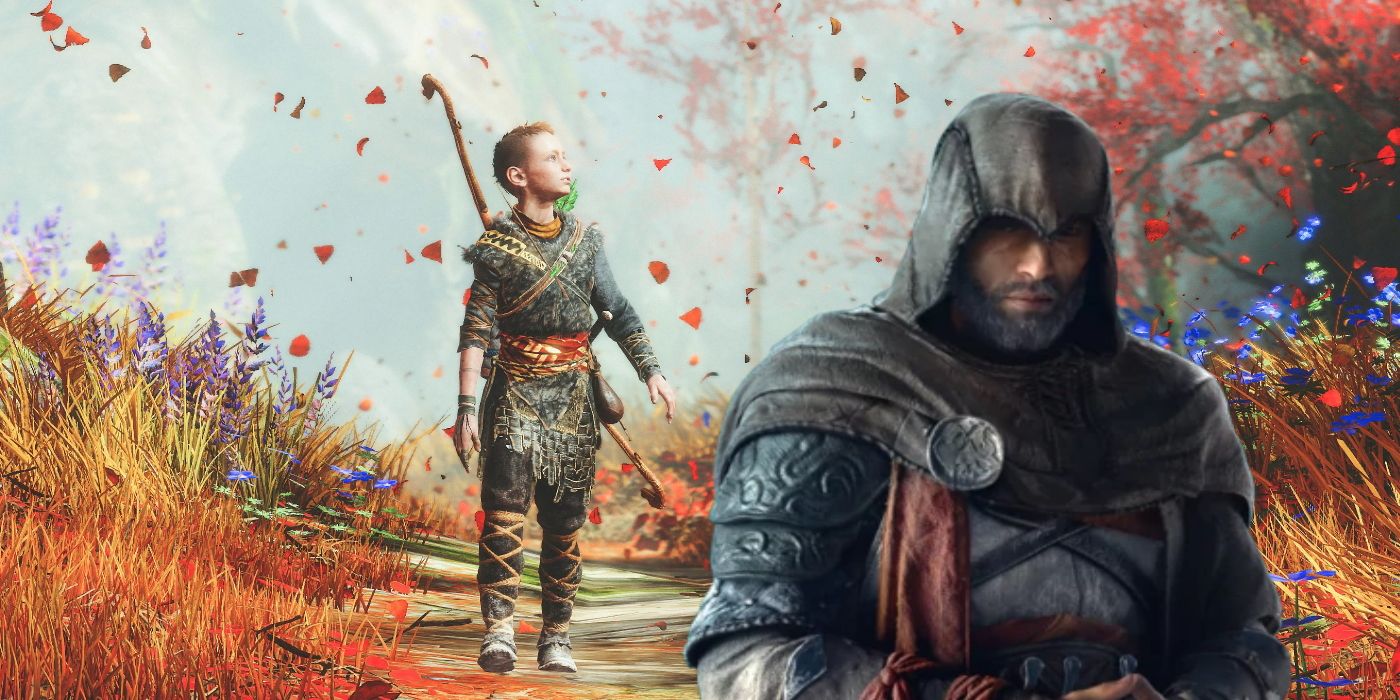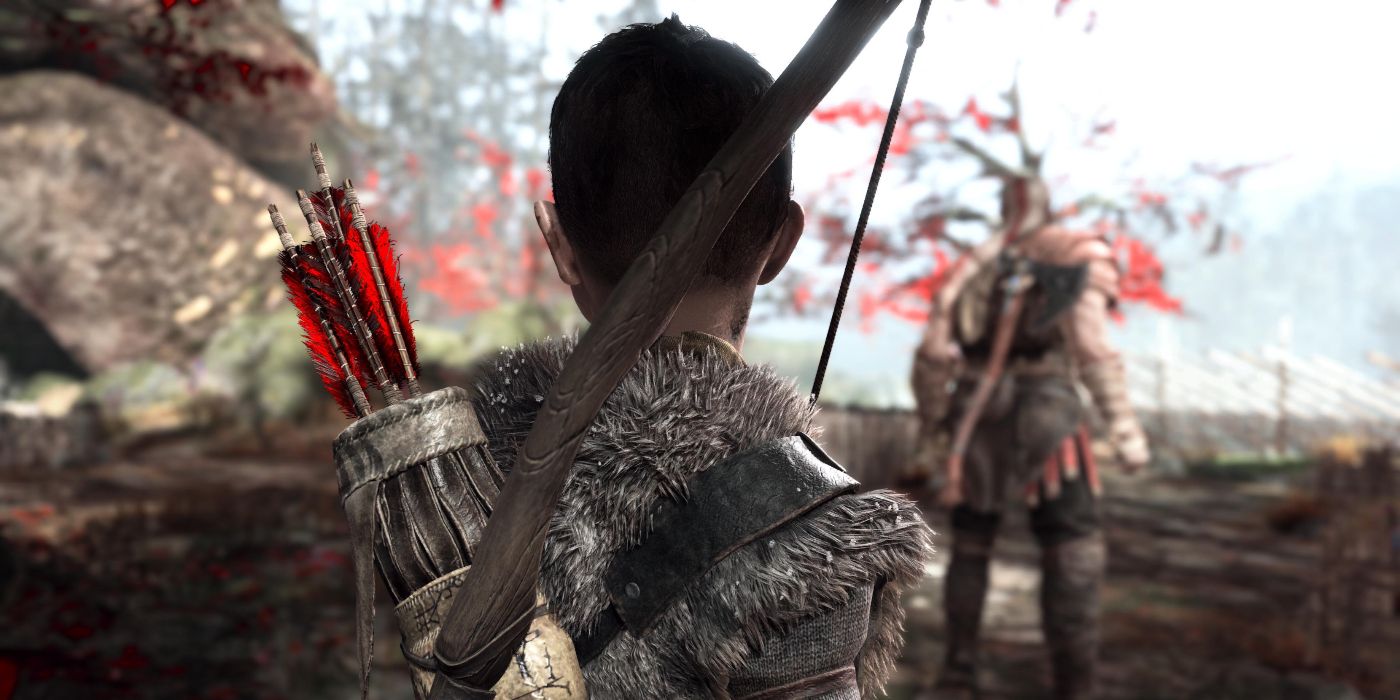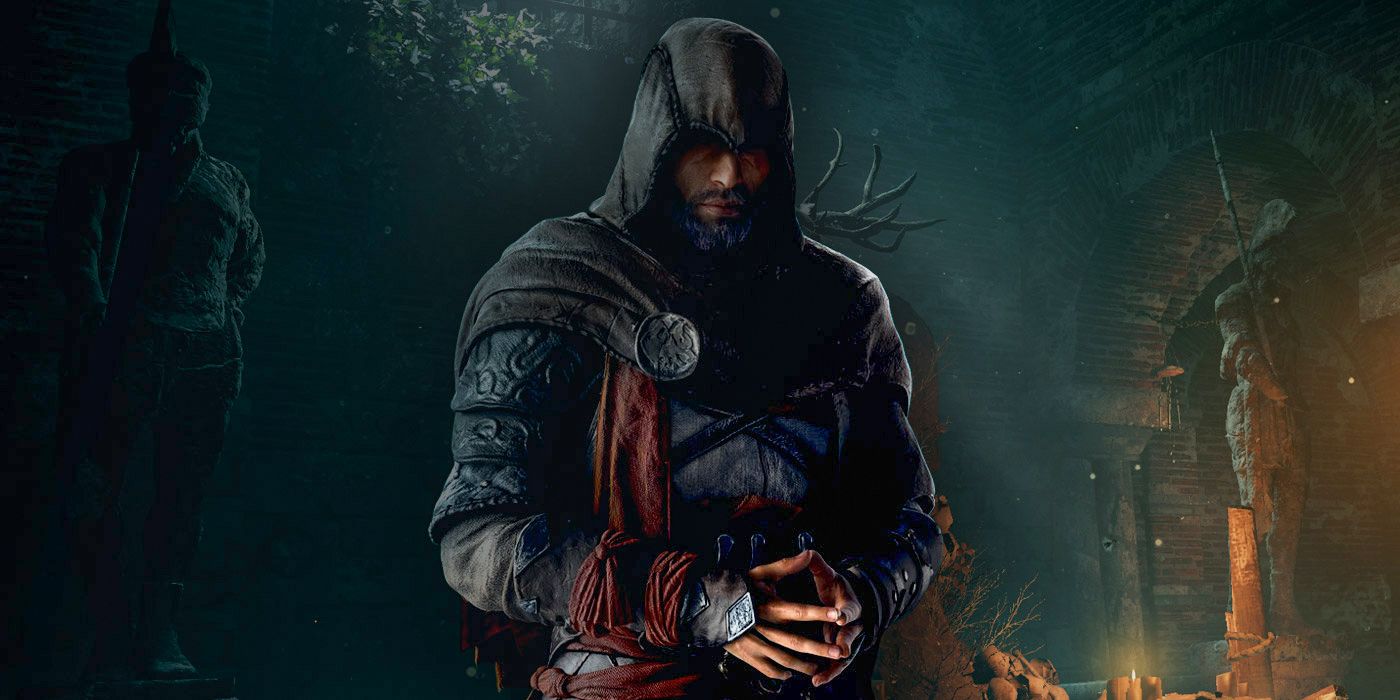
God of War and Assassin's Creed Valhalla released within just a couple of years of another, and both stories have a lot in common. Not only did both games deal with Norse mythology, but they also had surprisingly similar twists.
In both God of War and Assassin's Creed Valhalla, one of the player character's companions is revealed to be Loki, the Norse god of "svik"—mischief or deceit. The exact way this twist plays out is slightly different, but in both cases, there are a few big questions left behind that the next game will need to answer.
RELATED: Assassin's Creed Valhalla Kickstarter Brings Orlog Dice Game To Life

Although both games have a similar Loki twist, it is only Assassin's Creed Valhalla where the character revealed to be Loki is actually intentionally deceiving the protagonist. When Kratos and Atreus get near to the end of their quest to spread the ashes of Kratos' late wife Faye, they discover the Jotunheim mural, which spells out the prophecy of Ragnarok.
The prophecy refers to Atreus as Loki, which is revealed to be the Jotunn name Faye wanted to call Atreus. This isn't so much of an in-universe twist as it is a twist from the player's perspective when they realize that the mural is implying that Atreus will fulfill the role of Loki during Ragnarok, the death of the Norse gods.
There were already some hints at this twist throughout the game. In Norse mythology, Loki is the father of Jormungandr, the World Serpent. When Kratos and Atreus meet the World Serpent and use Mimir to communicate with the Jotunn, Mimir says that the World Serpent described Atreus as "familiar"—a play on him literally being family. While at the Lake of Nine the player might come across the Jormungandr's shrine. When the Norse runes on the shrine are translated into English they describe the World Serpent as a "son of Loki and Angrboda. Brother of Fenrir, Hel, and the Iron-Wolves." In Norse myth, Loki is the father of all of these beings, which the shrine seems to confirm in-universe as well.
The big question that's left up in the air is how Atreus, a young boy, could possibly be the father of the World Serpent. When discussing the story of the World Serpent Mimir explains that it is said that during Ragnarok Thor and the World Serpent battle with such ferocity that they cause the tree of life to splinter. This somehow caused the World Serpent to be flung backward through time to before his own birth, and now the displaced Jotunn awaits doing battle with Thor again during Ragnarok. If the shrine is anything to go by, this will end, as in the myths, with Thor succumbing to the World Serpent's venom.
Even if the World Serpent was sent back in time, however, there are still questions about the God of War timeline that need answering. At the end of the last game, Fimbulwinter had already begun. Fimbulwinter is the three years of winter that precedes Ragnarok, after which the events of the prophecy begin in earnest. It isn't long before Loki escapes his bonds and the gods of Norse mythology march to their final battle.
That would leave Atreus just three years to become the Loki of legend and father Fenrir, the World Serpent, Hel, and the Iron-Wolves. Atreus would still be too young three years after the last game. It's possible that the next God of War will somehow use the temporal event that sends Jormungandr back in time to also send Atreus back too, giving him years to become the Loki of Norse myth who Thor eventually imprisons and who escapes at the start of Ragnarok. However the studio plans to solve it, the question of just how Loki's children fit into things needs to be answered by the next game.
RELATED: How the Order of Ancients Will Probably Differ in Assassin's Creed Valhalla's Siege of Paris DLC

In Assassin's Creed Valhalla it is revealed that Basim is in fact a reincarnation of Loki, who like all of the gods in the Assassin's Creed universe is actually an Isu, a member of the now-extinct First Civilization. Having survived in the digital world of the Grey, Basim is able to remerge in the modern-day at the end of the game. Just as God of War has the potential to use time travel to explain its version of Loki's relationship with his children, Valhalla also hints at how Loki's monstrous children might make sense in its universe.
The wolf Fenrir is the final boss in Assassin's Creed Valhalla, but it is implied that his mythological rendition as a giant wolf is actually just how his memory has been passed down and that he was just an Isu like any other in life. The same, then, will likely be true of Loki's other children like the World Serpent. However, using these mythological giants as a metaphor for relatively normal Isu still raises some big questions.
In The Lost Cauldron memory, for example, it is said that Thor threw Jormungandr into the sea and that the resulting tidal waves caused many Jotnar to drown. It is explained that the Jotnar—the giants, or more accurately the 'devourers' of Norse mythology—were actually just a group of First Civilization Isu from a place then known as Jotunheim. What isn't explained, however, is what interaction Thor and Jormungandr had that could have possibly led to so many Jotnar drowning. If the Isu Jormungandr wasn't really a giant, it's hard to see how throwing him into the ocean would cause a tidal wave. Isu technology is likely involved, but for now, the mystery hangs over the series.
With Basim set up as the villain of the next game, hopefully, players will get some insight into what really happened during Loki's life as an Isu, and some of the in-universe truth behind the myths will become more clear. Until then, both God of War and Assassin's Creed Valhalla have some big questions to answer about their unique takes on Norse mythology.
Assassin's Creed Valhalla is available now on PC, PS4, PS5, Stadia, Xbox One, and Xbox Series X/S.
MORE: Assassin's Creed Valhalla - How to find Winnie the Pooh Easter Egg

